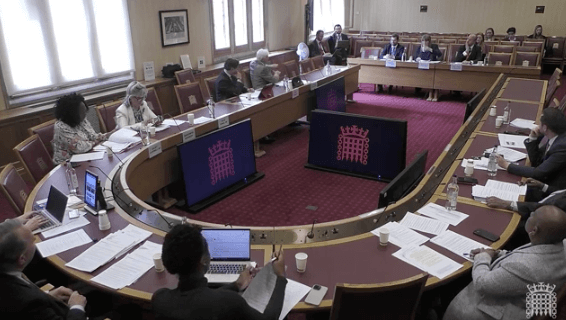Baroness Williams of Trafford, the Home Office, has provided the following answer to your written parliamentary question (HL6655):
Question by Lord Alton of Liverpool:
To ask Her Majesty’s Government how they intend to respond to the concerns raised by the Cavendish Coalition, on behalf of UK health and social care groups, that their current immigration proposals would not allow enough overseas workers to be recruited for the care sector; and how they intend to address any shortfall of such workers in the Immigration and Social Security Co-ordination (EU Withdrawal) Bill. (HL6655)
Tabled on: 09 July 2020
Answer:
Baroness Williams of Trafford:
The Government recognises the fantastic contribution made by those working in the social care sector and the need for roles in it to offer rewarding career opportunities. The independent Migration Advisory Committee has been very clear immigration is not the answer to the challenges faced in this sector, a view the Government shares.
The Minister for Future Borders and Immigration has met with the Cavendish Coalition to hear their thoughts about future immigration policy. In response he confirmed the Government would not be creating a migration route to allow some employers in the sector to permanently recruit at the legal minimum wage as an alternative to paying more competitive\rewarding salaries to their staff who undertake such valuable work supporting the most vulnerable.
He also outlined how the groups represented by the Cavendish Coalition should in the first instance seek to engage with the Department for Work & Pensions about how they can work together to encourage more UK based jobseekers into rewarding careers in the Social Care Sector, rather than view immigration as the preferred option for addressing any shortfall in recruitment and as a way to ensure continued recruitment at the legal minimum wage. This is especially relevant when many UK based workers with the ability to make excellent social carer workers are looking for new employment due to the economic impact of Covid-19.
As we implement the new immigration system, we want employers to focus on investing in our domestic work force and offering rewarding packages to Social Care Workers, rather than view immigration as an alternative to doing this. In relation to roles within the sector where specific training is required the new skilled worker route will provide for a broader range of roles, including senior care workers to come to the UK.
The EU Settlement Scheme means all EU and EAA citizens, and their family members, currently working in social care can stay in the UK and we are encouraging them to do so.
The Government is supporting the Social Care sector in several ways, including through launching a national recruitment campaign and providing councils with access to an additional £1.5 billion for adults and children’s social care in 2020-21.
Date and time of answer: 30 Jul 2020 at 13:15.




